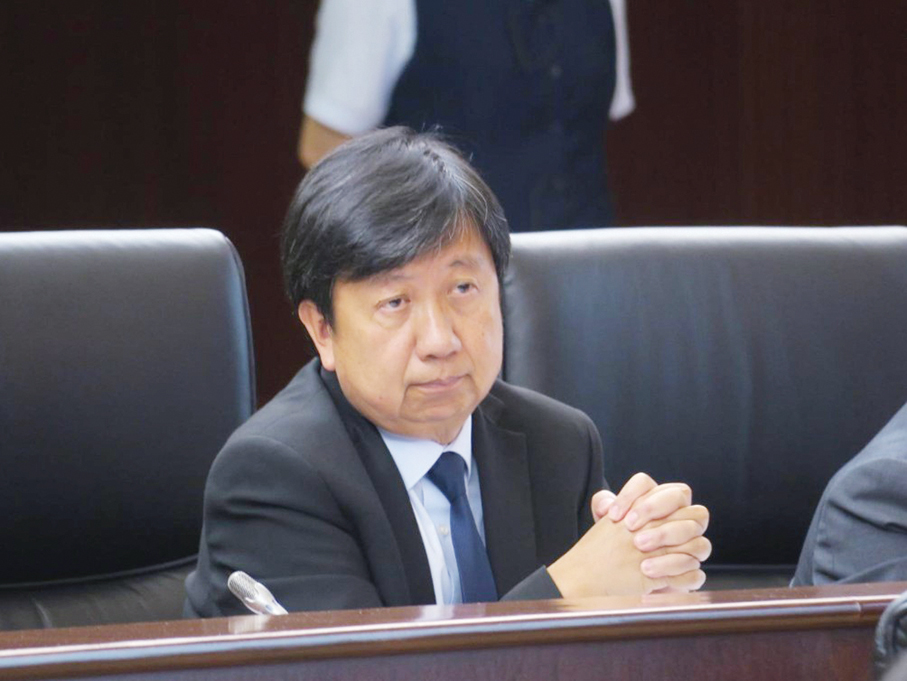Environmental Protection Bureau (DSPA) Director Raymond Tam Vai Man said yesterday that his bureau is studying the feasibility of incorporating a certain proportion of hydrogen energy in addition to the continued use of natural gas or carbon capture and storage technology, as well as the use of solar energy for power generation.
Tam made the remarks during an oral interpellation plenary session yesterday in the legislature’s hemicycle, adding that the extent to which hydrogen energy could be used in Macau would depend on the results of the study and would involve the issue of laying pipelines.
Tam stressed that the use of hydrogen energy is a general trend and that Macau would use hydrogen energy in the future in accordance with the national policy, but it was important to take into account the actual situation in Macau, and as Macau is a small place, it would be difficult to build hydrogen fuel stations.
Tam said his bureau was installing solar photovoltaic panels in the city, such as at the Ilha Verde Water Treatment Plant, which has achieved an annual saving of about 13 percent in electricity tariffs, and the car park in Taipa Ferry Terminal in Pac On, which has achieved a saving of about 11 percent in electricity tariffs.
In addition, during yesterday’s plenary session, Secretary for Transport and Public Works Raimundo do Rosário said that it was not possible to transmit natural gas to the whole city, as even if there existed a complete pipeline network around the city, the question was whether the owners of residential units would be willing to invest in the installation of connections, “and as far as we know, the owners are not very willing to do so.”
Tam said that nearly 90 percent of the natural gas pipeline network on the Macau Peninsula has been completed, and that the government was striving to improve the pipeline network during the excavation of some sections of the roads in the city.
Meanwhile, the pipeline network in Cotai had been completed, so that the pipeline network could reach the residential units there, and users could be connected upon applying for it, Tam said, adding that the gas pipelines of the new buildings are compatible with liquefied petroleum gas (LPG) and natural gas.
Tam said that the use of natural gas in the hotels of the city’s six resorts has risen, and the government will continue to cooperate with the Municipal Affairs Bureau (IAM) in promoting the use of natural gas in new restaurants.

Environmental Protection Bureau (DSPA) Director Raymond Tam Vai Man looks on during an oral interpellation plenary session yesterday in the legislature’s hemicycle. – Photo courtesy of TDM







